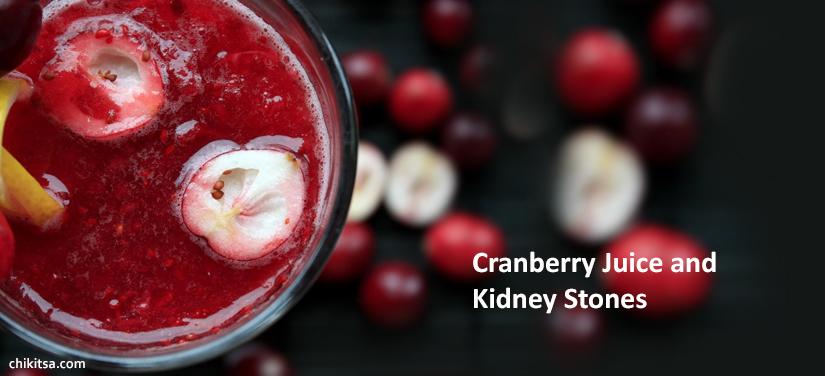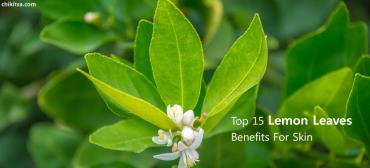Is Cranberry Juice Good For Kidney Stones?

Kidney stones or renal calculi occur as a result of crystallization or concretion of substances that are normally excreted by the kidneys through urine. Kidney stones are linked to an increased risk of developing end-stage renal disorders and even renal failure, cardiovascular diseases, diabetes mellitus, and even hypertension.
Kidney stone formation is the commonest disease of the urinary tract affecting about 12% of the population worldwide. It can affect people from both genders and all ages but affects men more than women in the age group of 20-49 years. The lifetime recurrence rate of kidney stones is higher in males than in females Recent studies indicate an increasing prevalence of kidney stones among women also. This increase in incidence is believed to be linked to lifestyle factors such as improper dietary habits and lack of physical activity. The following article will help you to know how to use cranberry juice for kidney stones?
How Are Kidney Stones Formed?
The mechanism by which renal stone formation occurs is quite complex and often multi-factorial. Certain risk factors for kidney stone formation are;
- High mineral content in drinking water
- Increased dietary intake of minerals
- History of recurrent urinary tract infections, especially among females
- Prolonged indwelling catheterization or history of repeated catheterization
- Neurogenic bladder
Some mechanisms by which kidney stone formation occurs are;
- Slow urine flow or a habitual holding in of urine for long durations
- Damage to the lining of the urinary tract usually as a result of recurrent urinary tract infections
- The decrease in inhibitor substances resulting in supersaturation and crystallization of substances.
What Are The Types Of Kidney Stones?
The chemical composition of kidney stones depends upon urinary abnormalities. The stone formation also depends upon the level of imbalance between inhibitors and promoters of crystallization present in urine.
Based on the type of mineral composition, kidney stones can be divided into the following types;
- Calcium oxalate
- Calcium phosphate
- Uric acid
- Cystine
- Struvite or Magnesium Ammonium Phosphate stones (triple phosphate)
Signs And Symptoms Of Kidney Stones
Some common clinical features of kidney stones are;
- Severe abdominal pain typically radiating from back to grain on the affected side. This pain is termed renal colic
- Increased frequency of urination
- Painful urination
- Obstruction to the passage of urine may occur if stones block the ureter or bladder outlet of urine
- Haematuria or blood in urine may be present as the passing stone or infection may cause injury to the lining of the kidneys or the urinary tract
- Nausea and vomiting may be present as a result of severe pain
Is Cranberry Juice Good For Kidney Stones?
Low fluid intake is a common cause of kidney stone formation. Therefore, high fluid intake is recommended for these patients; however, the choice of fluid must be carefully selected as some drinks tend to promote or enhance kidney stone formation. Such drinks include;
- Carbonated beverages
- Drinks containing cocoa
- Grapefruit juice
- Cola
[Also Read: Vegetables to avoid for kidney stones]
Some drinks that prevent or reduce the risk of kidney stone formation are;
- Mineral waters
- Fruits and herbal teas
- Orange juice
- Lemon juice
Cranberry juice for kidney stones is an old folk remedy that has been used over the decades to treat urinary tract infections by virtue of the natural contents of cranberry which inhibit attachment of bacteria to the urinary tract.
Research suggests that calcium stones are linked to a history of recurrent urinary tract infections and anti-adherent and anti-bacterial properties of cranberry prevent the formation of calcium stones.
A research paper published in 2003 involved a comparison of urine output from drinking cranberry juice as compared to simple water. The study found that consumption of cranberry juice for kidney stones produced statistically significant changes in urine composition which were absent in subjects who only drank water. This included;
- The decrease in oxalate excretion
- Increase in citrate excretion
- The decrease in phosphate excretion
- Increase in urinary pH
The study proves that cranberry juice consumption favorably alters the three major factors responsible for kidney stone formation. Marked reduction in oxalate after consumption of cranberry juice for kidney stones is essential since it is a major risk factor for calcium oxalate stone formation. It also suggests that cranberry juice may inhibit the absorption of oxalate from dietary sources but not juices.
The citrate works as an inhibitor of calcium oxalate stone formation. Drinking cranberry juice for kidney stones enhances urinary citrate levels and is, therefore, a widely accepted practice in the management of kidney stones.
Additional Tips To Manage Kidney Stones
- Regardless of the medicinal treatment, patients must be advised to consume an adequate amount of water to maintain the urinary output of at least 2 liters each day.
- A high sodium diet boosts stone formation. Therefore it should be restricted
- Restrict the intake of animal proteins
- Increase intake of fresh fruits and vegetables is advised to maintain optimum levels of potassium
- Dairy products and other foods containing a high amount of calcium must be avoided by people who have a tendency to form calcium stones. This is an exception for women post-menopause. Patients must seek medical assistance for their ideal calcium intake.
- Limitation of vitamin C supplements has been found beneficial in the prevention of kidney stones
- Avoid foods that contain oxalates such as excess of strawberries, spinach, tea, wheat bran, and peanuts.
When To See A Doctor For Kidney Stones?
It is important for patients to understand that kidney stones do require proper medical management and medical assistance for their prevention. Cranberry juice for kidney stones may work as an adjunct to the conventional treatment, but cannot replace it. Large stones or severely painful conditions may also call for surgical removal. So, it is always important for patients to seek medical help as soon as they notice signs and symptoms which suggest the presence of kidney stones.
Some alarming signs and symptoms for which patients must visit the doctor immediately are;
- Severe agonizing and unbearable abdominal pain
- Stoppage of urine. It is an alarming sign when the patient has not passed urine for over 4-6 hours. In such cases, surgical treatment is advised to get rid of the obstruction
- Presence of blood in the urine
- Fever with chills along with these signs and symptoms suggest urinary tract infection.









